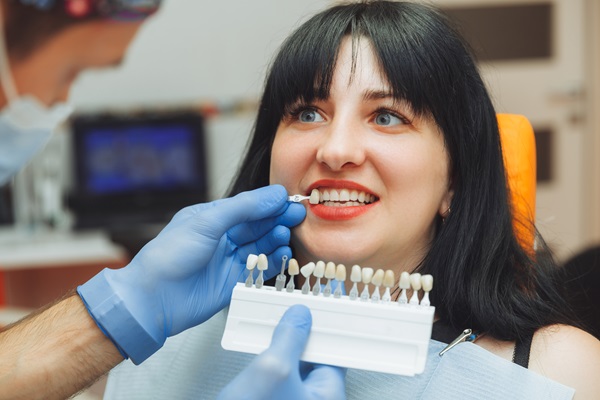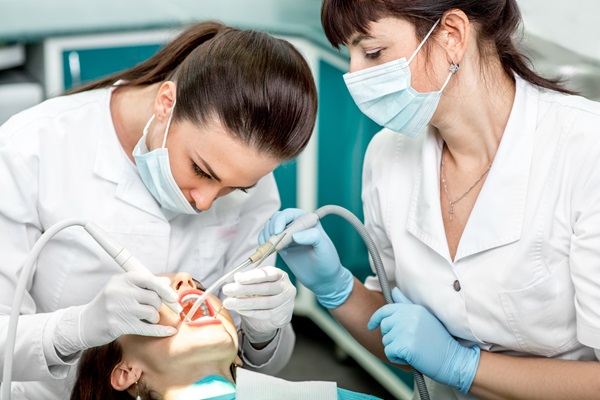Are Your Teeth Safe from the Destruction of Periodontal Disease?

Periodontal disease is one of the issues dentists deal with often. It is typically a slow and painless disease that can reach the advanced stages before you have any noticeable symptoms. Ironically, the early stages of periodontal disease can be easily reversed with basic treatment and improved oral hygiene. The latter stages, however, can only be managed with professional treatment.
Gum disease leads to the deterioration of bone structure and gum tissue. If left unchecked, it will eventually lead to the loss of the tooth. Plaque seeping into the gum line causes gum disease. It prompts a response from the immune system which attacks the bacteria in the plaque, leading to inflammation and soreness.
Preventing periodontal disease
When it comes to periodontal disease, prevention is better than treatment. It only involves simple things that you should already be doing if you take oral health seriously. Here are some easy ways to keep gum disease at bay:
1. Practice good oral hygiene
The first step towards keeping your mouth free of periodontal disease is good dental hygiene. You should:
- Brush your teeth twice daily, making sure one of those times is before bed
- Floss once a day
- Use an antibacterial mouthwash to reduce the number of bacteria in the mouth
2. Eat healthy foods
There are a variety of foods that facilitate gum disease. The main culprits are foods that contain plenty of sugar. Try to avoid anything that promotes the buildup of plaque.
3. Drink water
Water washes away food particles, bacteria and plaque from your teeth. Drinking a good amount of water every day makes it more likely that plaque is washed away before it has a chance to get underneath the gums.
4. Stay away from things that contribute to gum disease
Using tobacco products increases your odds of developing periodontal disease. There are also certain medications, like contraceptives, that create conditions that are favorable for gum disease. Speak to your doctor about these risks before beginning a new medication.
5. Visit the dentist often
There are no substitutes for regular visits to the dentists. The office staff will clean your teeth to remove plaque and tartar. During the appointment, the dentist will examine you for signs of gum disease and tooth decay.
When is professional help needed for gum disease?
As was mentioned earlier, regular visits to the dentist help to keep plaque and tartar buildup in check. The dentist uses a special metal tool to scrape off the hardened plaque. If the dentist notices symptoms of gum disease, treatments like root scaling and planing or a deep cleaning might be necessary. These treatments remove tartar and plaque from underneath the gums, stopping gum disease in its tracks. If the gum disease is still in the early stages, the dentist might create a personalized oral hygiene routine and prescribe a therapeutic mouthwash.
Visit us to prevent periodontal disease
If your gums are bleeding, sore or inflamed, then call our office. Getting treatment now can prevent tooth loss or other complications.
Are you considering periodontal disease treatment in the Huntsville area? Get more information at https://www.yourhuntsvilledentist.com.
Check out what others are saying about our dental services on Yelp: Periodontics.
Recent Posts
Lumineers® are a type of veneers that do not require the removal of significant amounts of teeth enamel prior to their installation. Veneers are thin shells that are cemented to the front part of a person’s teeth. These restorations serve as masks, hiding defects and flaws on teeth they are cemented on.Veneers are designed to…
A regular dental cleaning is vital for maintaining optimal oral health. While many people understand the importance of these appointments, the specifics of what happens during dental cleanings may remain a bit mysterious.In this review, we discuss the procedure of a typical dental cleaning, providing insight into the process and highlighting its significance in preventive…
General dentistry consists of a lot of routine oral health care, which also happens to include restoring teeth that are in bad shape due to damage. Common damage may include cracks, chips, or cavities, all of which can be addressed with the help of different dental restorations. Continue reading to find out what dental restoration…
If you have recently replaced a mouthful of teeth, you are probably adjusting to new dentures. Although dentures greatly improve your smile, this does not mean you immediately become used to wearing them. The good news is there are methods you can use to help adjust, and in about a month, your dentures should start…


